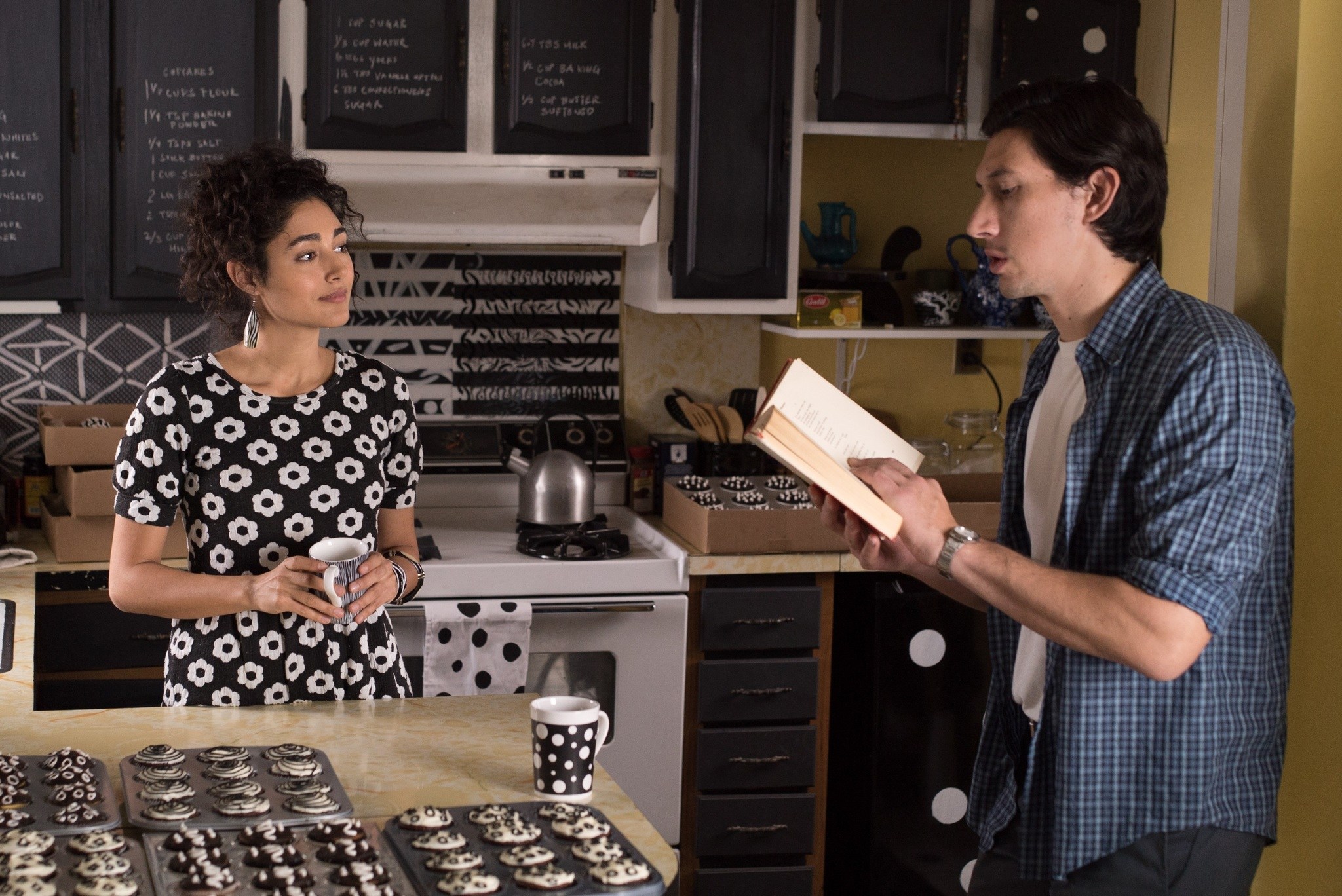If Paterson, New Jersey, already seems overblessed with great poets—William Carlos Williams and Allen Ginsberg both laid claim to the place—Jim Jarmusch believes it may have room for one more. In Jarmusch’s Paterson, the bard in question is a bus driver, an agreeable young man who organizes his life according to a timetable. He has to; he’s a bus driver. But he also writes poetry, and periodically we see his poems projected on the screen. They are written in the off minutes of his job, and they have the beguiling lightness of words written in off minutes. Despite the appearance of casualness, we can see that these words are carefully and precisely chosen.
That is of course a description of the peculiar charm of Jarmusch’s own movies, which—from Stranger Than Paradise to his 2013 gem Only Lovers Left Alive—have projected a superbly crafted shagginess. Paterson joins this list, and is one of the most pleasurable movies in recent memory. But that shouldn’t disguise how deeply felt it is, or how something crucial is at stake in the writing of a poem. Because something crucial is always at stake in the writing of a poem.
The bus driver’s name, curiously, is also Paterson. He is played by Adam Driver, the tall, dark goof whose quick-rising career (from Girls to The Force Awakens) has been pointing toward this role. Paterson has a happy home life with his wife Laura (Golshifteh Farahani, the Iranian actress from The Patience Stone)—or happy enough. Maybe his nightly dog-walking around the neighborhood, which invariably allows for a civilized beer at a local bar, might indicate a need to take a break from domestic existence. As focused and orderly as Paterson’s routine is, Laura tends to glom onto serial enthusiasms: One day she’s bent on opening a pastry shop, the next she’s determined to be a country-Western singer complete with Persian twang. Their modest home is full of clothes and objects that reflect her keen interest in black-and-white doodads as an aesthetic principle. (The movie has gentle fun with Laura’s faddish interests, but her designs would flourish on the artisanal-hipster market.)
One of Paterson’s developing poems has to do with a box of Ohio Blue Tip matches. Fine: If William Carlos Williams can write “so much depends upon/a red wheel barrow,” then Paterson can write about a box of Ohio Blue Tip matches. This is consistent with the way Jarmusch’s movies have always stubbornly insisted that people on the margins are worthy of interest, and that passing fancies merit our attention. He’ll never win an Oscar doing that, obviously, because allegedly important films are about important things, and who could say that the daily rituals of a New Jersey bus driver are important? Except that maybe this focus on human beings with humble aspirations ought to be important right now.
Back when the indie-film movement was cresting in the 1990s, there was a consensus calling-out of “quirky” movies—it was all getting a little self-consciously cute. By the time he made Dead Man in 1995, Jarmusch was well beyond that. Lately his whimsies have seemed graver. Take an example from Paterson: Our driver/poet eavesdrops on bus conversations, because that’s what writers do. One such takes place between two teenagers, who discuss onetime Paterson resident Gaetano Bresci, the Italian anarchist and assassin of King Umberto I. (The movie’s big on shout-outs to Paterson notables; native son Lou Costello, the rotund half of Abbott & Costello, is mentioned more than once.) Fans of independent films might notice, or not, that the two young actors are the runaways from Wes Anderson’s Moonrise Kingdom, Kara Hayward and Jared Gilman. It’s nice to imagine those two willful kids still knocking around together, and amusing to think their studies have turned to anarchism. The conversation, and the casting, might sound overly precious—indeed, quirky. Instead, the film’s capricious asides and transient encounters come across as entirely authentic. A bus driver sees a lot of things just like this, and a poet turns them into art. Paterson, Rated R. Opens Fri., Jan. 13 at Regal Meridian 16.
film@seattleweekly.com






